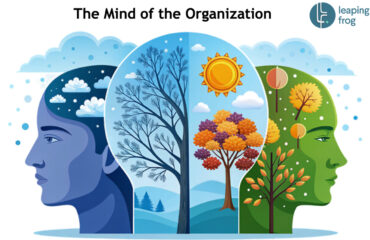
Behavior as a Function of Context: Insights and Applications
Explore how Behavior as a Function of Context influenced by the surrounding. In psychology and organisational behaviour, the idea that people don’t fundamentally change but are influenced by changes in their environment is deeply rooted in the principles espoused by Kurt Lewin, a pioneering figure in social psychology.
Lewin’s famous equation, “B = f(P, E)”, encapsulates this concept succinctly: Behavior is a function of the person in their environment. This simple yet profound formula underscores the notion that individual traits or characteristics do not solely determine human behaviour but are profoundly shaped by the context in which individuals find themselves.
Consider the analogy of a plant growing in a garden. The plant’s growth and development are influenced by various factors such as soil quality, sunlight, water availability, and surrounding vegetation. Similarly, human behaviour is intricately linked to the environment in which individuals operate. Just as a plant may flourish or wither depending on its surroundings, people’s behaviours, attitudes, and actions are moulded by their social, cultural, and situational contexts.
For instance, imagine a person who is typically reserved and introverted in social settings. However, when placed in an environment that fosters openness, collaboration, and encouragement, such as a supportive team at work or a welcoming community group, this individual may gradually become more outgoing and expressive. Conversely, if the environment is hostile, judgmental, or restrictive, the person may retreat further into their shell, exhibiting even greater introversion.
This principle holds significant implications for various domains, including education, healthcare, and organisational management. In educational settings, educators recognise the importance of creating inclusive and supportive environments that nurture students’ growth and learning. Similarly, in healthcare, practitioners acknowledge the influence of environmental factors on patients’ behaviours and well-being, tailoring treatment plans and interventions accordingly.
In organisational management, the significance of context must be balanced. Effective leaders understand that shaping organisational culture and creating conducive work environments are essential for fostering employee engagement, productivity, and satisfaction. By cultivating a culture of trust, collaboration, and innovation, leaders can empower employees to thrive and adapt to changing circumstances.
Lewin’s principle reminds us that while individuals possess inherent traits and tendencies, their behaviours are not fixed or immutable. Instead, they are dynamic and responsive to the context in which they find themselves. By recognising the power of the environment in shaping behaviour, we can create environments that inspire positive change, growth, and development in individuals and organisations alike.
Leaping Frog, a new-age consulting firm, is an enabler and co-creator in enhancing people and organisational effectiveness. We love doing work in the areas of “Driving Organisational Change and Development”, “HR Systems and Talent Strategy”, and “Leadership and Life Coaching”.
Connect and share, for work and more.
Mail: comm@leapingfrog.in
Website: www.leapingfrog.in
Follow Us: https://lnkd.in/d7TQbsia




